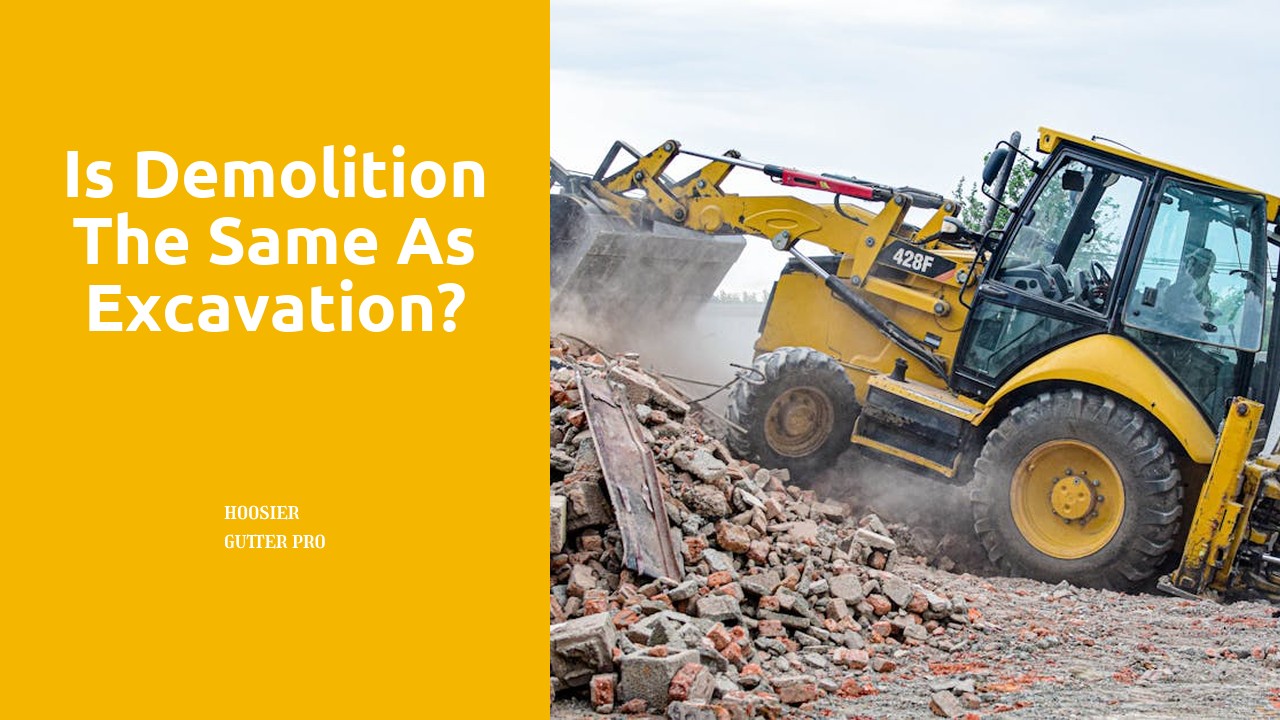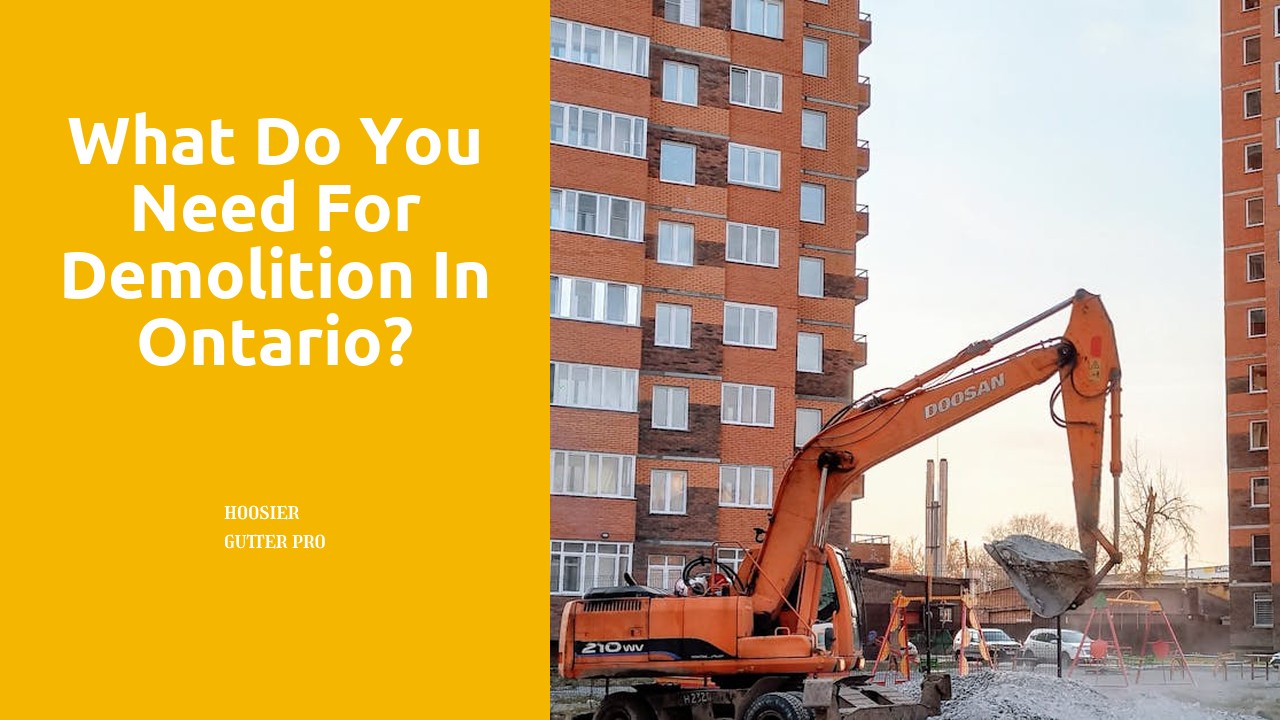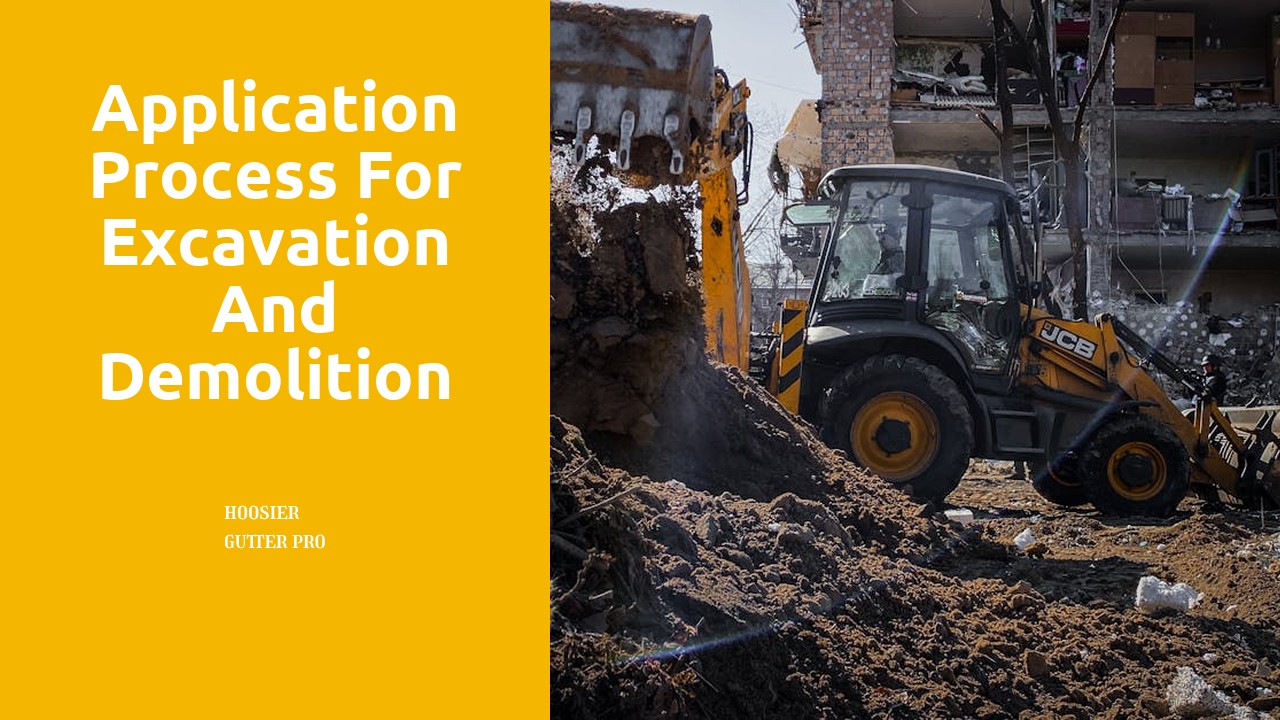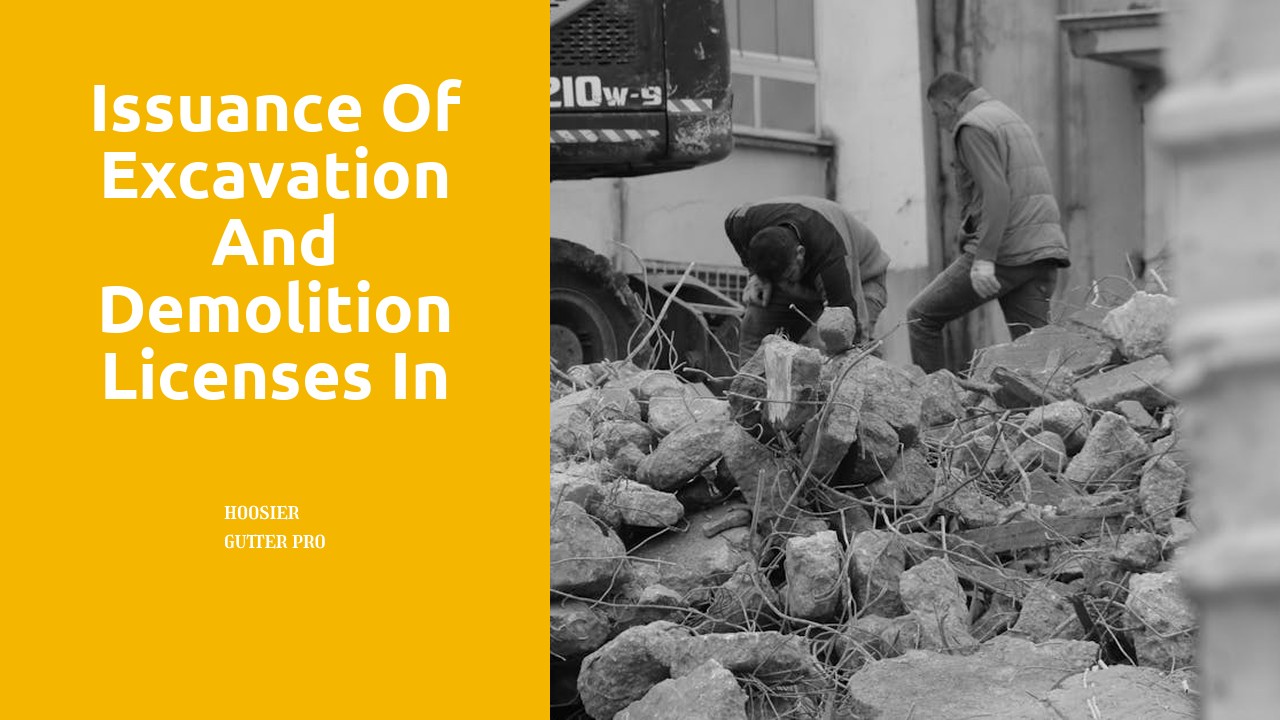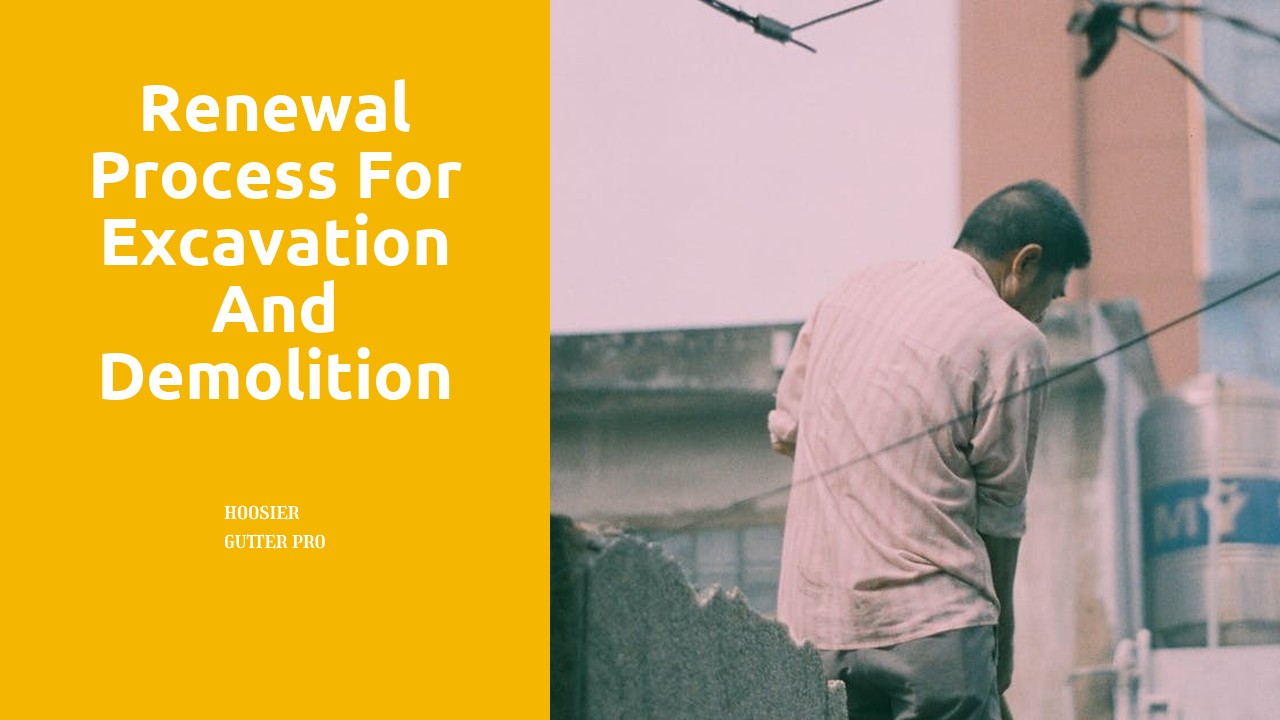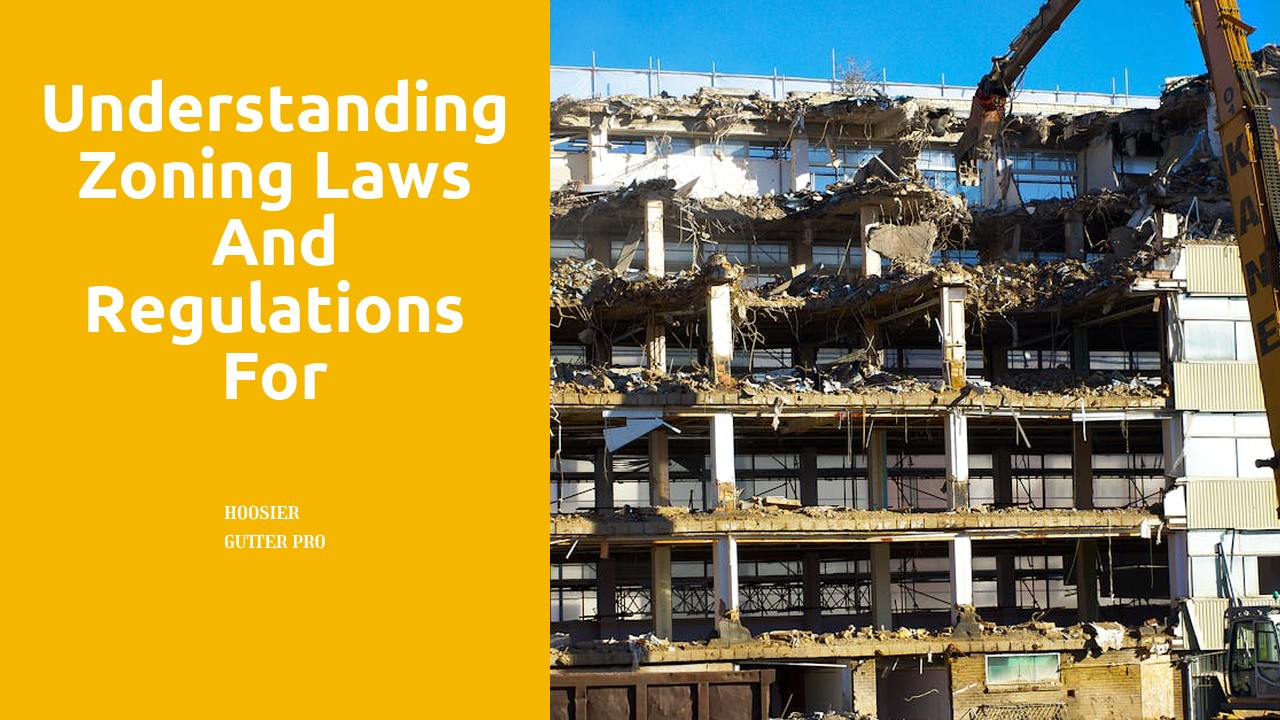
Zoning Variance Applications
Zoning variance applications play a crucial role in the process of excavation and demolition in Halton Region. When the intended excavation or demolition project does not comply with the existing zoning regulations, a variance application is necessary to seek approval for the proposed work. It is essential to note that variances are typically granted when the project aligns with the overall intent of the zoning bylaws and does not pose a significant detriment to the surrounding properties or community.
Applying for a zoning variance requires detailed documentation outlining the specific reasons for the requested variance and how it aligns with the broader zoning objectives. Additionally, providing clear evidence of how the proposed excavation or demolition project will not negatively impact the environment or the safety of the surrounding area is crucial for a successful application. Understanding the intricacies of zoning variance applications is essential for ensuring compliance and obtaining the necessary approvals for excavation and demolition in Halton Region.
Steps for Applying for a Zoning Variance
When seeking a zoning variance for excavation and demolition in Halton Region, it is essential to adhere to the prescribed steps to ensure a smooth application process. The initial step is to obtain the necessary application form from the local municipal office or website. The form must be completed accurately and include all required information such as the property address, details of the proposed project, and the specific zoning bylaw requirements that are being requested for variance.
After completing the application form, it is crucial to gather any supporting documents that may strengthen the case for the zoning variance. This may include site plans, architectural drawings, photographs, and any other relevant information that demonstrates the necessity or benefit of the proposed excavation or demolition project. Once all paperwork is in order, submit the application to the appropriate municipal department along with any required fees. It is important to follow up with the municipality to ensure that the application is processed in a timely manner and to address any additional requests or inquiries they may have.
Compliance Inspections for Excavation Projects
Compliance inspections play a crucial role in ensuring that excavation and demolition projects in Halton Region adhere to zoning laws and regulations. These inspections are conducted by municipal authorities to verify that the work being carried out complies with the approved permits and does not pose any risk to public safety or the environment. Inspectors typically assess various aspects of the project, such as the location of the excavation site, proper disposal of waste materials, and adherence to noise and dust control measures.
During compliance inspections for excavation projects in Halton Region, inspectors commonly look for violations such as inadequate erosion and sediment control measures, failure to protect adjacent properties from potential damage, and improper storage or disposal of hazardous materials. It is essential for project managers to be aware of these potential violations and take proactive measures to address them before the inspection takes place. By ensuring full compliance with zoning laws and regulations, excavation and demolition projects can proceed smoothly and without disruptions to the surrounding community.
Common Violations in Excavation Compliance Inspections
Excavation and Demolition in Halton Region often face various violations during compliance inspections. One common violation is the failure to obtain the necessary permits before starting any excavation work. It is crucial for contractors to ensure that they have the required permits in place to avoid any legal ramifications and delays in the project. Additionally, improper excavation practices such as not following the specified safety guidelines or not adequately securing the site can lead to violations during inspections.
Another frequent violation in excavation compliance inspections is related to property damage. Excavation and demolition activities can inadvertently cause damage to neighboring properties if proper precautions are not taken. This includes issues such as encroaching on property lines, damaging fences or structures, or disrupting utilities without authorization. Contractors must be vigilant and take necessary measures to prevent any property damage during their excavation projects in Halton Region.
Demolition Waste Management Guidelines
In Halton Region, proper waste management guidelines are essential for excavation and demolition projects to ensure environmental protection and public safety. When it comes to managing waste from demolition activities, it is crucial to adhere to best practices to minimize the impact on the surrounding environment. Contractors and property owners must familiarize themselves with the regulations set forth by the municipality and implement strategies for responsible waste disposal.
One key aspect of demolition waste management is the proper sorting and disposal of materials to divert as much waste as possible from landfills. Recycling and reusing materials such as concrete, wood, and metal can significantly reduce the volume of waste generated from demolition projects. Implementing a waste management plan that prioritizes recycling and salvaging materials not only benefits the environment but also aligns with sustainable practices in construction and demolition. Excavation and demolition in Halton Region must be carried out with a focus on minimizing waste and promoting environmentally-friendly practices throughout the project lifecycle.
Best Practices for Demolition Waste Disposal
Proper disposal of demolition waste is crucial when conducting excavation and demolition in Halton Region. A key best practice is to separate materials into distinct categories for recycling and proper disposal. This ensures that recyclable materials do not end up in landfills, reducing environmental impact and promoting sustainability. Additionally, collaborating with waste management companies that specialize in demolition waste disposal can help streamline the process and ensure compliance with local regulations.
Moreover, implementing a waste management plan specific to the demolition project can help facilitate efficient waste disposal. This plan should detail the types of waste generated, the designated disposal methods for each type, and any recycling options available. By adhering to these best practices for demolition waste disposal, construction companies engaged in excavation and demolition in Halton Region can minimize their environmental footprint and contribute to a cleaner and more sustainable community.
FAQS
What are zoning laws and regulations related to excavation and demolition?
Zoning laws and regulations govern how land can be used and developed within a specific area. They dictate what types of activities, such as excavation and demolition, are allowed in different zones.
When would I need to apply for a zoning variance for excavation or demolition projects?
You would need to apply for a zoning variance if your project does not comply with the existing zoning regulations, such as setback requirements or land use restrictions. This allows you to request an exception or change to the zoning rules for your specific project.
What are some common violations found during compliance inspections for excavation projects?
Common violations during compliance inspections for excavation projects include failure to obtain the necessary permits, exceeding allowed noise levels, improper disposal of excavated materials, and encroaching on neighboring properties.
How can I ensure proper disposal of demolition waste in accordance with regulations?
To ensure proper disposal of demolition waste, it is important to follow guidelines for waste management and disposal set by local authorities. This may include segregating different types of waste, recycling materials where possible, and using authorized waste disposal facilities.
What are some best practices for demolition waste disposal to minimize environmental impact?
Some best practices for demolition waste disposal to minimize environmental impact include salvaging reusable materials, recycling as much waste as possible, properly disposing of hazardous materials, and following all regulations for waste management and disposal.

